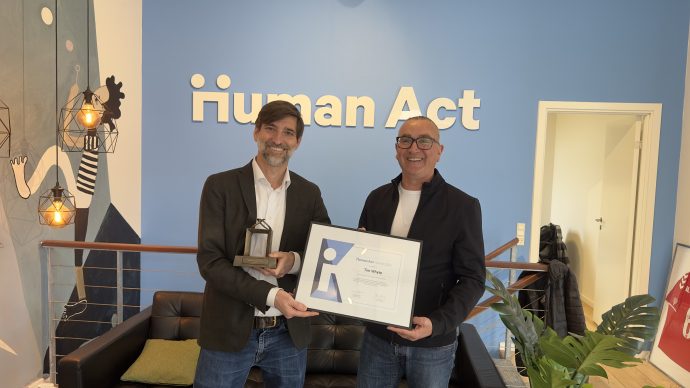Nearly a year after his arrest on charges of “devil worshipping” and “promoting music that contradicts Egyptian religious beliefs and cultural norms”, Egyptian heavy metal musician and concert promoter Nader Sadek is suing Head of the Music Syndicate Hani Shaker for libel and defamation. The initial hearing is scheduled to take place at the Abdeen Misdemeanour Court on Sunday 21 May 2017.
“Shaker has launched a persistent and vicious defamation campaign against me, repeatedly accusing me of being part of an international devil worshipping network and of failing to obtain the required permits for the heavy metal music concerts I organize,” Sadek told Freemuse, adding that “the false allegations” had landed him in deep trouble.
Under Egyptian law, libel and defamation are criminal offenses punishable by jail terms of up to two years and fines reaching up to 20,000 Egyptian pounds (approx. 2,000 Euros).
Sadek’s lawyer, Mokhtar Badr, believes the court case against Shaker will likely drag on for several months, but he says he is optimistic about the outcome.
“Even if we do not win the court case, the prosecution of the head of the syndicate will certainly deter him and others from hurling false accusations at people and defaming them. And there is always The Hague; we can always take the case there.”
Fængslet en time før koncert
In 2016, Sadek, who had previously organized a series of heavy metal concerts in Egypt, bringing several internationally-acclaimed heavy metal bands to Cairo, had hoped he could follow up his “earlier successes” with another concert featuring Brazilian heavy metal band Sepultura.
However, on 4 June 2016 (the date of the concert), an hour before the show was scheduled to start, Sadek and two technicians were arrested outside the concert venue, Nile Country Club.
A representative of the venue, who spoke anonymously to Ahram Online at the time, said Sadek and the rest of the organizers only had permits from the Music Syndicate, adding that other permits were needed for such a concert as the country club was a tourist venue.
Forfærdlige fængselsforhold
Sadek told Freemuse that he and the technicians were interrogated by prosecutors and detained for four days in a crammed underground cell shared by some 40 other inmates at the October 6 police station.
“The conscript who shoved me into the cell told my fellow inmates that I was a ‘devil worshipper’ and that they could deal with me in whatever way they saw fit. Naturally, I was terrified,” Sadek recalled, adding that a police officer had earlier put out his cigarette on his foot.
“I managed to ward off the inmates’ attacks by explaining that I was a musician and had done nothing wrong. Luckily, they believed me and I was not harmed.”
Økonomiske konsekvenser
Needless to say, the Sepultura concert was cancelled, which resulted in hefty financial losses for Sadek, who claims to have paid the Music Syndicate 60,000 Egyptian Pounds (approx. 3,000 Euros) to secure the required permits for the concert.
Worse still, it also tarnished his reputation as a concert promoter.
Sadek hopes the lawsuit will not only lead to Shaker’s conviction, but will also help him recoup, at least partially, the financial losses resulting from the syndicate’s disruption of the Sepultura concert, as well as two previous concerts.
More importantly, Sadek believes that winning the court case will help him regain his credibility, undermined by Shaker’s persistent vilification campaign against him in the media, branding him a” Satanist” and describing the concerts as “devil worshipping, sinister events”.
Udfordringer med tidligere koncerter
Shaker’s campaign demonising Sadek dates back several months before the cancelled Sepultura concert. In February 2016, Sadek organized a heavy metal concert featuring bands from the Middle East and headlined by US black metal band Inquisition.
Sadek said he had been forced to change the venue and date of the Inquisition concert at the last minute “to throw police off my tracks” after suspecting that security agencies were planning to call off the concert and have him arrested. However, Sadek had difficulty finding a venue willing to hold the event.
“Club owners who would initially express interest in hosting the show would later backtrack after receiving threats or warnings either directly from the authorities or from their loyalists in the media, “ he lamented. “This fueled my suspicions that something was not quite right.”
By secretly changing the date and venue, Sadek was able to avert arrest at the time, but it also meant that many fans were unable to attend as they had no clue where or when the concert was taking place.
In the days after the show, Shaker gave several TV interviews portraying himself as a hero, claiming to have “infiltrated a devil-worshipping event to rescue Egyptian youths from a foreign conspiracy aimed at destroying their values”.
The syndicate head also claimed that some of the metalheads attending the Inquisition concert had been seen sporting the Star of David on their T-shirts, which Sadek explained was a pentagram, an image commonly used in the heavy metal genre.
Sadek has denied the allegations, insisting that Shaker had not infiltrated the concert and no devil-worshipping rituals were practiced by the concert-goers, “unless you can call head-banging a form of devil worship”, he told Freemuse in a tongue-in-cheek comment.
Sadek is convinced that the Music Syndicate is behind his arrest and vows to file a lawsuit against them after he wins the case against Shaker.
“They are a dangerous, corrupt mafia. First, they bully you into paying for permits for the concerts; once you get the overcharged permits, you find out that other security permits are also required. These measures are meant to stifle you and stop the concerts from taking place altogether,” he explained.
Frygt spreder sig
The remarks made about heavy metal and its listeners have succeeded in spreading fear among Egyptian metalheads, many of whom have opted to stay away from such concerts for fear they may be arrested if they showed up.
“We have seen the number of concert-goers diminish over the months, from about 1,000 at our September 2015 concert to 400 at our show held in February 2016. Meanwhile, only 40 fans had bought tickets for the 4 June Sepultura concert that was called off by the authorities,” Sadek explained.
It was not just the fans that had kept their distance, rival Egyptian heavy metal bands too were reluctant to participate in the event.
Sadek had invited several of them to come and perform with Sepultura, however they all declined. Sadek believes the reason they had turned down his offer was because they had known he would be arrested that day.
In February 2016, according to a heavy metal fan who spoke to independent Mada Masr newspaper on condition of anonymity at the time of the Inquisition concert said, however, that two of the bands on the bill pulled out of the event because of a disagreement with Sadek over payment.
While it is not within the syndicate’s powers to cancel concerts, it uses the security forces to do the job for them.
Heavy metal er almindelig musik
Sadek warns that the syndicate’s policies are alienating young musicians. He, however, is thankful for the recent change in public attitudes regarding heavy metal music, saying there is a growing awareness that heavy metal is just a music genre like any other and should by no means be associated with devil worshiping.
Sadek has, in recent weeks and months, received support from many in intellectual and liberal circles, including some open-minded journalists, who have decried his arrest and criticized the syndicate’s campaign against him as “baseless and ignorant”.














